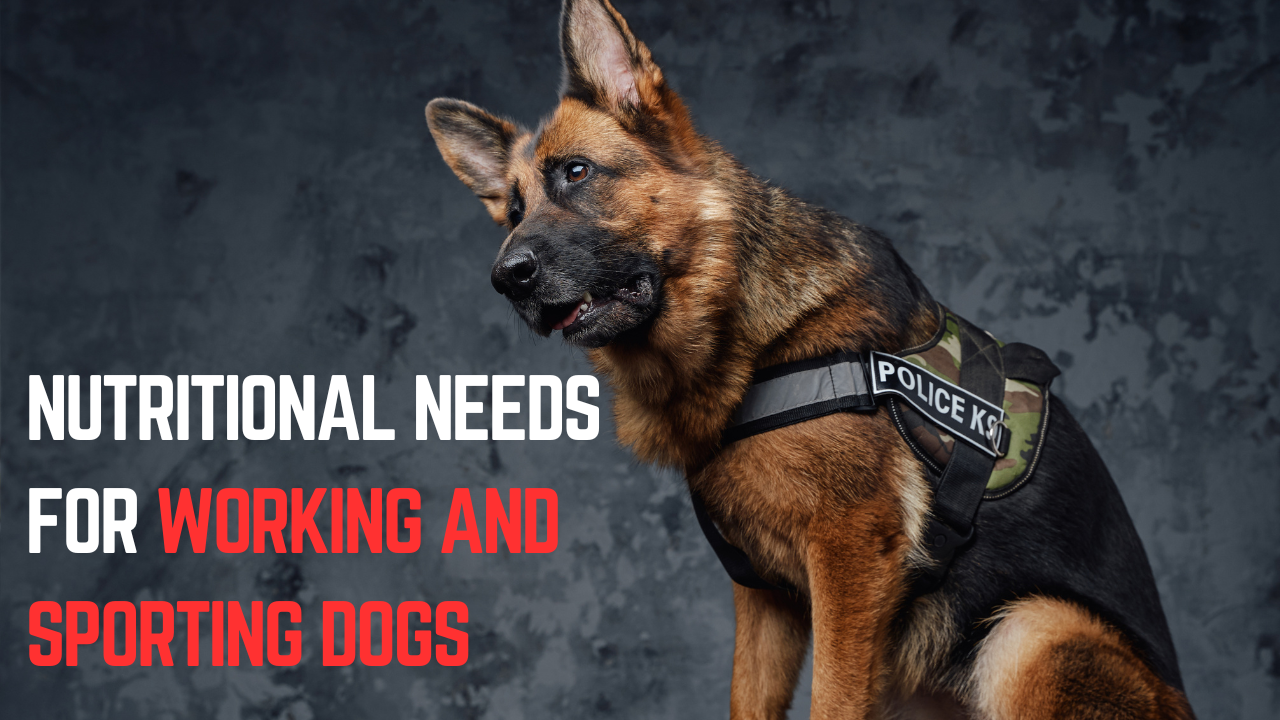Working and sporting dogs are incredible athletes who require special care to keep them healthy, happy, and performing at their best. Whether they’re herding sheep, hunting, or competing in agility sports, these dogs burn more energy than the average pet. Meeting their nutritional needs is crucial to ensure they stay strong and fit. Here’s what you need to know about feeding these active pups!
1. Higher Caloric Intake 🍖🔥
Because of their physical demands, working and sporting dogs need more calories to maintain their energy levels. While a typical dog might need around 1,000 calories a day, an active working dog could require two or even three times that amount! It’s important to feed them a diet rich in high-quality proteins and fats to support their energy needs.
Make sure to choose a dog food specifically formulated for active dogs, as these contain the right balance of nutrients to fuel their performance.
2. Protein for Muscle Strength 🏋️♂️🐾
Protein is the building block for muscles, and active dogs need plenty to maintain their strength and stamina. A diet high in protein helps repair and build muscles after long days of work or intense sporting activities. Look for dog foods with animal-based proteins like chicken, beef, or fish as the primary ingredient, which are more digestible and beneficial than plant-based proteins.
For optimal muscle maintenance, aim for a diet that contains at least 25-30% protein, depending on your dog’s activity level.
3. Healthy Fats for Sustained Energy 🥩⚡
Fats are another crucial part of a working dog’s diet because they provide a concentrated source of energy. Unlike carbs, fats give your dog long-lasting energy, perfect for dogs that need to work or perform for hours. Look for healthy fats like those found in fish oil, chicken fat, or flaxseed oil, which also support coat health and brain function.
A good working dog diet should contain around 15-20% fat, but highly active dogs might benefit from a higher fat percentage to keep them going.
4. Carbohydrates for Quick Energy 🍠🏃♂️
Carbohydrates can provide quick bursts of energy, which can be especially useful during short, high-intensity activities. While fats provide sustained energy, carbs give that extra push when needed. Whole grains, sweet potatoes, and brown rice are excellent sources of carbs that can fuel your dog without causing a spike in blood sugar.
Make sure carbs are part of a balanced diet but don’t let them dominate—protein and fats are still the most important for sustained energy.
5. Hydration is Key 💧🐶
Staying hydrated is critical for working and sporting dogs, especially during long, hot days. Dogs can lose a significant amount of water through panting and physical activity, so it’s essential to provide plenty of fresh water. In some cases, active dogs may also benefit from electrolyte supplements to replace what they lose through sweat.
Always make sure your dog has access to water, especially during and after intense activities, to prevent dehydration and overheating.
6. Vitamins and Minerals for Overall Health 🥕🍎
Vitamins and minerals play a crucial role in keeping your dog healthy and their body functioning properly. Working dogs particularly benefit from antioxidants like vitamins C and E, which help reduce inflammation and promote recovery after strenuous activities. Additionally, minerals like calcium and phosphorus are vital for bone health, while omega-3 fatty acids support joint mobility.
A well-balanced dog food for active dogs typically provides all the necessary vitamins and minerals, but you can always consult your vet if supplements are needed.
Final Tips for Feeding Working and Sporting Dogs 🏆🐕
- Feed multiple times a day: Instead of one large meal, consider feeding your dog smaller meals throughout the day to maintain consistent energy levels.
- Adjust portions based on activity: If your dog has a particularly active day, increase their food slightly to compensate. If they’ve had a lighter day, you can reduce it.
- Consult your vet: Always check with your vet for specific recommendations based on your dog’s breed, size, and activity level.
By providing the right nutrition, you can ensure your hardworking dog stays in peak condition, ready to tackle any challenge that comes their way! 🐾💪

